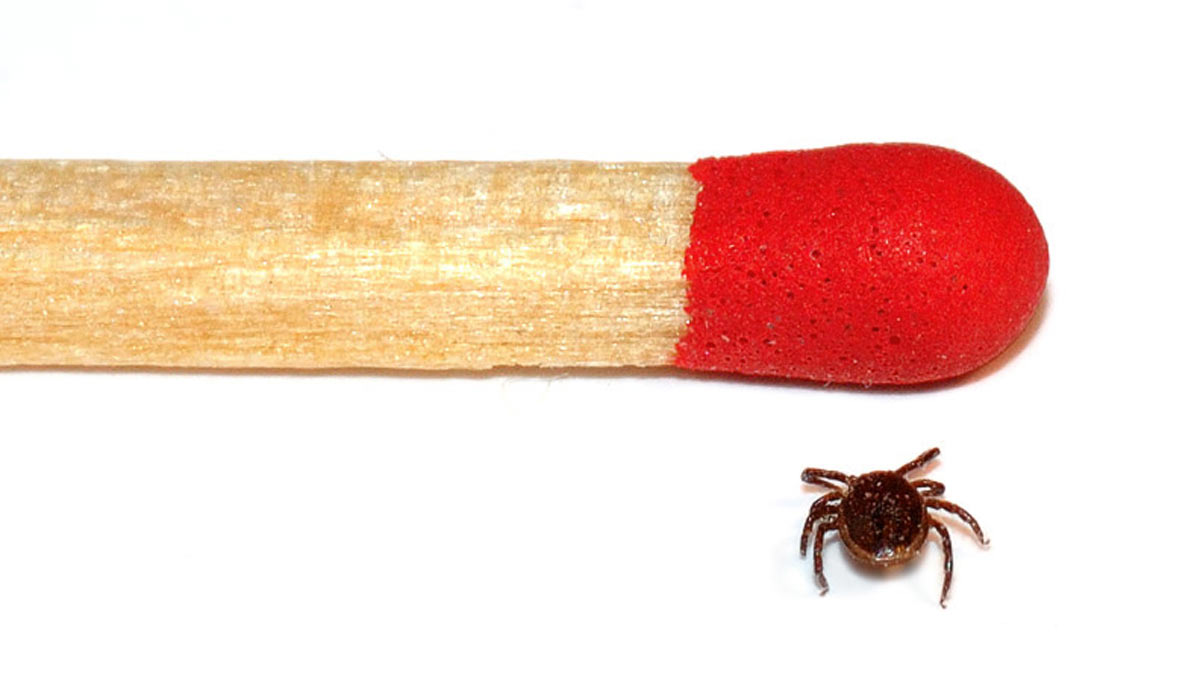Lyme disease: how serious is the tick-borne illness?
Cases are soaring, with one famous sufferer calling the disease 'the most significant threat to human health'

A free daily email with the biggest news stories of the day – and the best features from TheWeek.com
You are now subscribed
Your newsletter sign-up was successful
The number of people who have contracted Lyme disease has quadrupled in just 12 years, according to new figures released by the NHS.
More than 1,100 people were diagnosed with the tick-borne disease in 2013, the Daily Telegraph reports. Experts believe the surge in infections is due to a number of factors, including the rise in housing developments in rural areas and warmer winters, which prolong the lives of ticks.
Despite its increased prevalence, GPs have difficulty spotting the disease and tests for the infection are often unreliable, the newspaper reports.
The Week
Escape your echo chamber. Get the facts behind the news, plus analysis from multiple perspectives.

Sign up for The Week's Free Newsletters
From our morning news briefing to a weekly Good News Newsletter, get the best of The Week delivered directly to your inbox.
From our morning news briefing to a weekly Good News Newsletter, get the best of The Week delivered directly to your inbox.
A number of high profile celebrities and politicians have reportedly contracted the disease in recent years, including Avril Lavigne, Alec Baldwin and George W Bush. Last month, British billionaire and Phones4U founder John Caudwell revealed that his entire family had been infected.
"It's really the most under-researched and most significant threat to human health and this must change, and it must change quickly," Caudwell told Sky News.
How serious is it?
If the disease is allowed to progress, serious symptoms like meningitis, facial paralysis and heart failure can develop. In some cases, people with Lyme disease go on to develop long-term symptoms similar to those of fibromyalgia or chronic fatigue syndrome, the NHS warns. This is known as post-infectious Lyme disease.
A free daily email with the biggest news stories of the day – and the best features from TheWeek.com
What can you do?
There is no vaccination for the disease and the NHS advises that the best way to prevent the illness is to be aware of the risks and take sensible precautions when visiting areas where ticks are likely to be found, such as keeping to footpaths, wearing appropriate clothing and using insect repellent. If you discover a tick on your skin, remove it immediately and wash with soap and water and apply an antiseptic cream. People are more likely to become infected if the tick remains attached to their skin for more than 24 hours.
If the disease is diagnosed early enough, it can be treated effectively with a course of antibiotics. However, there is currently no clear medical consensus on the treatment of post-infectious Lyme disease.
-
 Bad Bunny’s Super Bowl: A win for unity
Bad Bunny’s Super Bowl: A win for unityFeature The global superstar's halftime show was a celebration for everyone to enjoy
-
 Book reviews: ‘Bonfire of the Murdochs’ and ‘The Typewriter and the Guillotine’
Book reviews: ‘Bonfire of the Murdochs’ and ‘The Typewriter and the Guillotine’Feature New insights into the Murdoch family’s turmoil and a renowned journalist’s time in pre-World War II Paris
-
 Witkoff and Kushner tackle Ukraine, Iran in Geneva
Witkoff and Kushner tackle Ukraine, Iran in GenevaSpeed Read Steve Witkoff and Jared Kushner held negotiations aimed at securing a nuclear deal with Iran and an end to Russia’s war in Ukraine